
- Shandong Loyal Industrial Co.,Ltd.
- SHORT-CUT PASTA PRODUCTION LINE LONG-CUT PASTA PRODUCTION LINE INSTANT PASTA PRODUCTION LINE
Home> Application> Sustainable Innovation: Fully Automated and Energy-Efficient Solutions for Dry Pasta Production Lines

Sustainable Innovation: Fully Automated and Energy-Efficient Solutions for Dry Pasta Production Lines
Sustainable Innovation: Fully Automated and Energy-Efficient Solutions for Dry Pasta Production Lines
Shandong Loyal Industrial Co., Ltd. has incorporated advanced technologies from FAVA and UTF in the production of its macaroni.Pasta manufacturing has come a long way from traditional methods to embrace modern technology, presenting both challenges and opportunities in the industry. As we delve into the evolution of pasta production, it becomes evident that sustainable practices play a pivotal role in shaping the future landscape of the pasta manufacturing industry.
The historical context of pasta production traces the journey from manual methods to the advent of advanced technologies. Challenges in modern pasta production include the need for increased efficiency, reduced environmental impact, and enhanced product quality.
Sustainability has become a cornerstone in the pasta manufacturing industry. The growing awareness of environmental concerns and the need for responsible practices highlight the crucial role sustainability plays in steering the industry toward a more eco-friendly future.

Sustainable Technologies in Dry Pasta Production Lines
Fully automated dry pasta production lines redefine efficiency and precision. These systems, exemplified by state-of-the-art technologies such as San Giorgio, Great Value, and Ronzoni, eliminate manual processes, ensuring a seamless and controlled production flow.
San Giorgio, with its innovative approach to fully automated systems, sets the standard for efficiency. By integrating cutting-edge technologies into its production lines, San Giorgio achieves unparalleled precision and consistency.
Energy efficiency is paramount in modern pasta manufacturing. The incorporation of energy-saving innovations into dry pasta production lines, exemplified by industry leaders like Great Value and Ronzoni, not only reduces environmental impact but also contributes to cost-effectiveness.
Great Value leads the way with its commitment to energy-efficient solutions. The implementation of advanced technologies minimizes energy consumption, aligning with sustainable practices while maintaining high-quality pasta production.
Implementation and Benefits
Real-world case studies showcase the successful implementation of sustainable technologies in fully automated and energy-efficient dry pasta production lines. Industry giants like San Giorgio, Great Value, and Ronzoni stand as testimony to the positive impact on production efficiency.
The advantages derived from sustainability measures extend beyond efficiency. The implementation of fully automated and energy-efficient solutions results in cost-effectiveness, reduced waste, and a positive impact on product quality, contributing to the overall success of the pasta manufacturing industry.
Future Trends and Innovations
As we look toward the future, emerging technologies promise to further enhance fully automated and energy-efficient solutions in dry pasta production lines. Continuous innovation is expected to redefine the industry landscape, ensuring sustainability remains a core focus.
The discussion on future trends includes the evolving landscape of sustainability practices in pasta manufacturing. Technology will play a pivotal role in driving forward sustainable initiatives, ensuring a harmonious balance between production efficiency and environmental responsibility.

Closing Thoughts
In conclusion, the sustainable innovation witnessed in fully automated and energy-efficient dry pasta production lines marks a transformative phase in the industry. The integration of advanced technologies by industry leaders reflects a commitment to both efficiency and environmental responsibility.
As pasta manufacturers embrace sustainable practices, the industry is poised for a future where automation, energy efficiency, and responsible production coexist harmoniously. The journey towards a greener and more efficient era in dry pasta production is a collective effort, with the pioneering contributions of industry leaders shaping the path for others to follow.
In the pursuit of sustainable innovation, the pasta manufacturing industry stands at the forefront of positive change, ensuring a delicious and environmentally conscious future for pasta enthusiasts worldwide.

FAQs: Common Queries about Dry Pasta Production Lines
1. What are the key features of fully automated dry pasta production lines?
Fully automated dry pasta production lines integrate advanced technologies to streamline processes. Key features include robotic precision, real-time monitoring, and efficient resource utilization, ensuring optimal production efficiency.
2. How do energy-efficient solutions contribute to sustainability in pasta manufacturing?
Energy-efficient solutions, such as those employed by industry leaders like Great Value and Ronzoni, contribute to sustainability by reducing overall energy consumption. This not only lowers environmental impact but also aligns with cost-effective and responsible production practices.
3. What role do case studies play in showcasing the success of sustainable technologies?
Case studies provide real-world examples of the successful implementation of sustainable technologies in dry pasta production lines. They highlight the positive impact on production efficiency, waste reduction, and product quality, offering valuable insights for industry practitioners.
4. How can emerging technologies shape the future of dry pasta production?
Emerging technologies hold the potential to redefine the landscape of dry pasta production. Anticipated innovations include further automation, enhanced energy-saving mechanisms, and the integration of smart technologies, paving the way for a more efficient and sustainable future.
5. What steps can pasta manufacturers take to adopt sustainable practices?
Pasta manufacturers can adopt sustainable practices by investing in fully automated and energy-efficient solutions. This includes integrating advanced technologies, optimizing resource utilization, and aligning production processes with eco-friendly initiatives
Contact Us

- Shandong Loyal Industrial Co.,Ltd.
- Telephone+86 13176674591
- Email[email protected]
- WhatsApp+86 13176674591
- WeChat13176674591
- AddressC623, Jiahui Global Plaza, No. 548, Beiyuan Street, Tianqiao District, Jinan City, Shandong Province
- Factory AddressADD -300m North of Zhangxia Industrial Park, Binhe Road, Zhangxia Town, Changqing District, Jinan
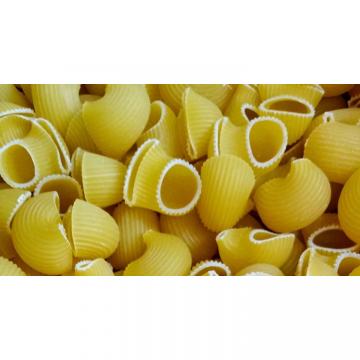

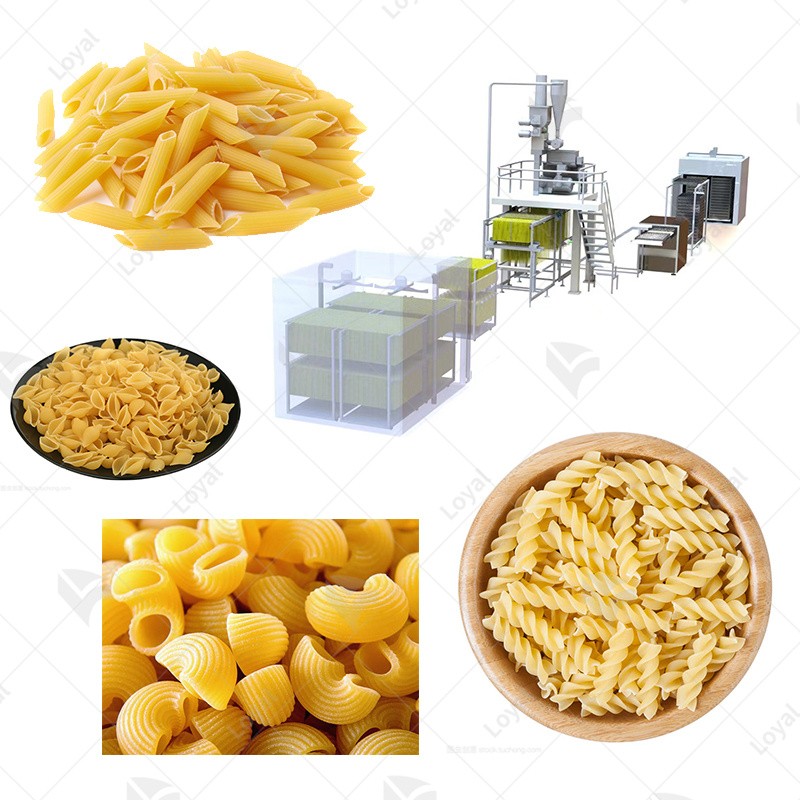

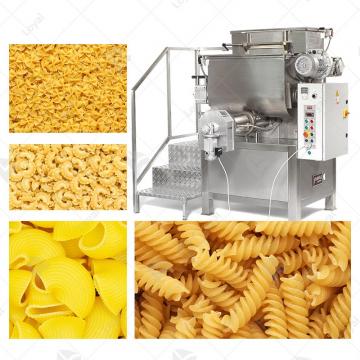
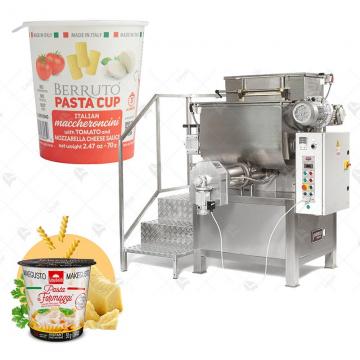 INSTANT PASTA CUP PRODUCTION LINE
INSTANT PASTA CUP PRODUCTION LINE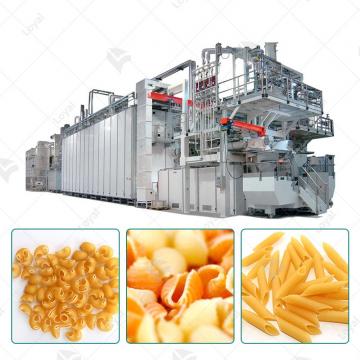 VACUUM PASTA EXTRUDER
VACUUM PASTA EXTRUDER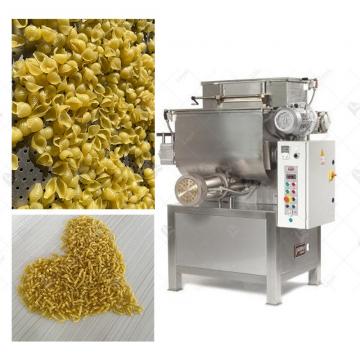 PRECOOKED PASTA PRODUCTION LINE
PRECOOKED PASTA PRODUCTION LINE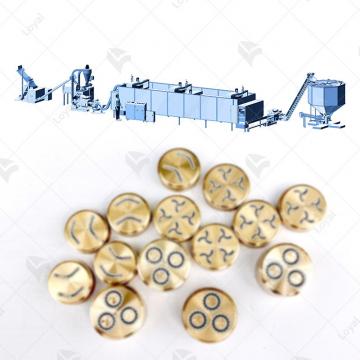 Pasta Processing Equipment
Pasta Processing Equipment